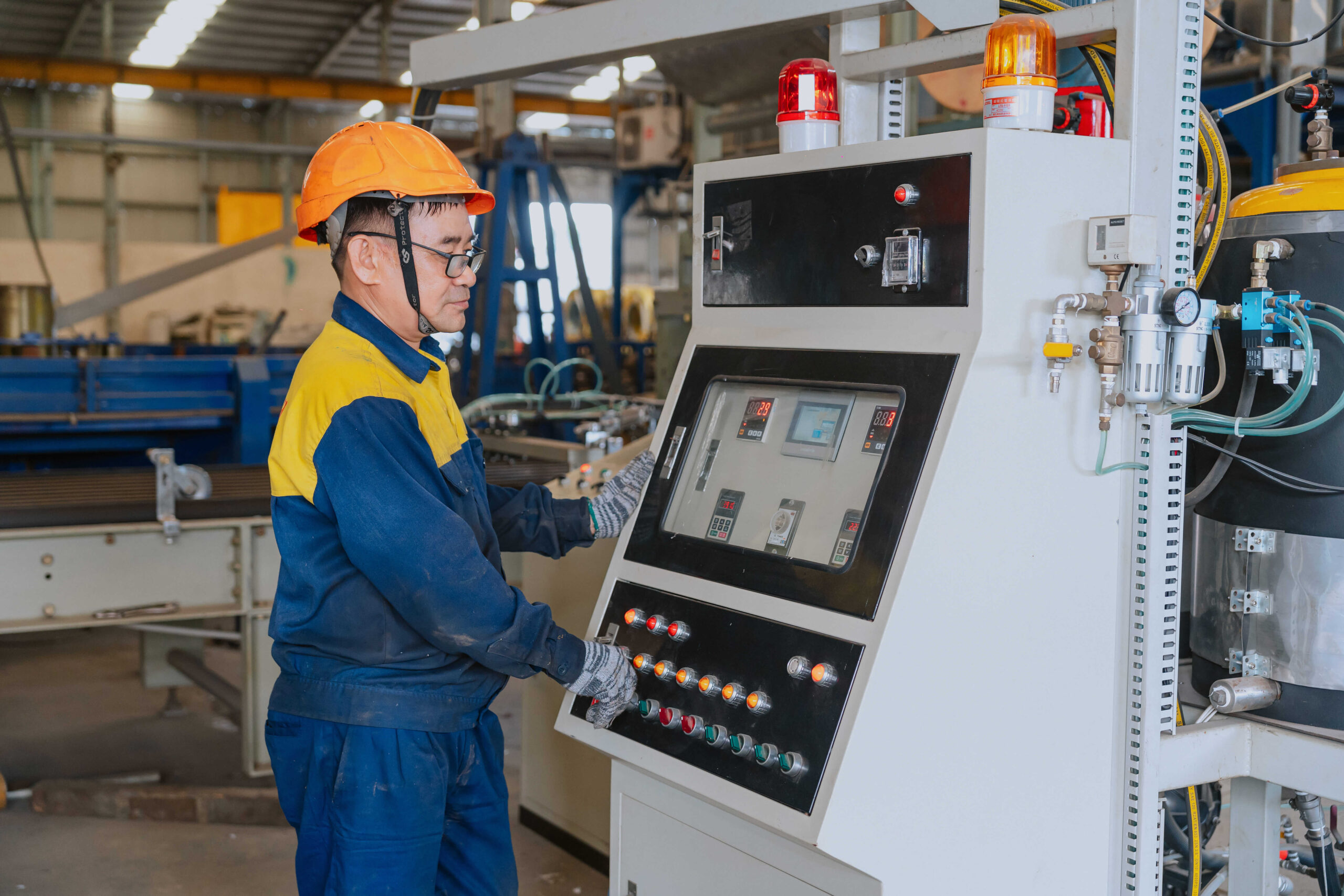In the era of Industry 4.0, Artificial Intelligence (AI) is not just a trend but a game-changer in the manufacturing industry, particularly in steel production and machinery manufacturing. According to a report by PwC, AI has the potential to contribute $15.7 trillion to the global economy by 2030, with a significant portion coming from manufacturing. By leveraging its ability to process vast amounts of data and optimize operations, AI is revolutionizing how businesses operate, ensuring superior quality and minimizing costs.
1. How Does AI Improve Product Quality?
Rapid and Accurate Defect Detection
AI-powered inspection systems can monitor product surfaces in real time, identifying even the smallest flaws. For example, ArcelorMittal, one of the world’s largest steel manufacturers, uses AI to detect surface cracks as small as 0.1mm—something nearly impossible for the human eye to catch.
Process Optimization Through Real-Time Data
AI utilizes data from IoT sensors to adjust machine parameters like rolling speed, pressure, and temperature. This not only ensures products meet high standards but also reduces error rates. A factory in Germany reported a 20% productivity increase and a 15% reduction in material waste after implementing AI-driven process optimization.
Predictive Maintenance
AI analyzes historical machine data to predict potential failures before they happen. General Motors, for instance, uses AI-based predictive maintenance systems that have reduced unexpected downtime by 25%, saving millions annually.
2. How Does AI Reduce Production Costs?
Automation of Repetitive Tasks
AI replaces manual labor for repetitive tasks such as product sorting and packaging, significantly reducing labor costs. McKinsey estimates that AI-driven automation can reduce production costs by 20-40% in factories.
Minimized Material Waste
AI precisely calculates the amount of material needed for each process, optimizing usage and reducing waste. A steel manufacturing plant in China saved $5 million annually by using AI to minimize scrap steel through accurate cutting processes.
Smart Energy Management
AI monitors energy consumption across machinery, recommending operational adjustments to save power. Siemens has implemented AI-driven energy management in its factories, achieving up to a 30% reduction in electricity costs.
3. Applications of AI in Steel and Machinery Manufacturing in Vietnam
Defect Detection for Steel and Roofing Sheets
In Vietnam, AI integration in steel and roofing sheet production lines is becoming more common. AI systems quickly detect surface defects, reducing reliance on manual inspection and saving valuable production time.
Automated Adjustment of Technical Specifications
Machines like roll-forming and gutter machines at companies such as Tân Tân Thành can integrate AI to automatically adjust technical parameters, ensuring consistent quality and faster production.
Market Demand Analysis
AI helps manufacturers analyze domestic and international market data to forecast demand for steel and machinery products. This allows businesses to optimize production plans and inventory management, especially as Vietnam expands steel exports to major markets like the US and EU.
Conclusion
AI is not just a support tool but a strategic weapon for the steel and machinery manufacturing industry to achieve greater success. By adopting AI, businesses can boost competitiveness while optimizing all aspects of quality and cost. At Tân Tân Thành, we take pride in being a pioneer in integrating advanced technology into our production processes, delivering unmatched value to our customers.









